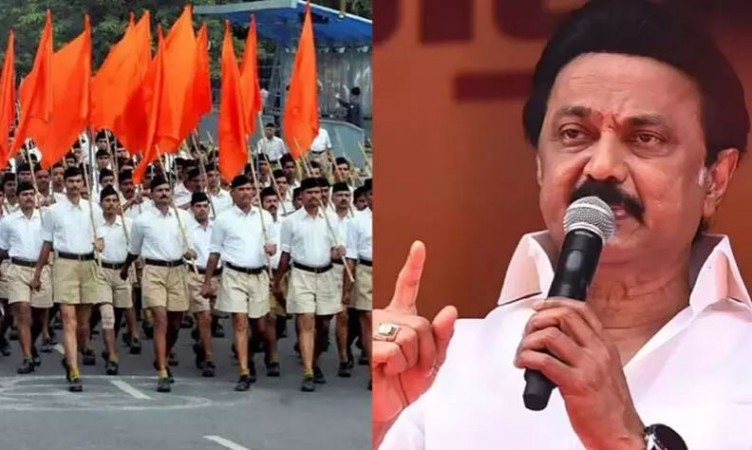
New Delhi: The Supreme Court, the country's largest court, has given permission to the Rashtriya Swayamsevak Sangh (RSS) to conduct a road march in the state (the RSS Root March in Tamil Nadu), dealing a big blow to the MK Stalin government of Tamil Nadu. In fact, the RSS had sought permission to hold road marches in 47 places in Tamil Nadu, but the Tamil Nadu government flatly refused to give permission. The Supreme Court on Tuesday (April 11) dismissed the Tamil Nadu government's appeal challenging the Madras High Court order allowing the RSS to take out marches in the state. The bench of Justice V Ramasubramaniam and Justice Pankaj Mittal of the apex court, after considering all the facts, has decided to uphold the decision of the Madras High Court given on February 10.
Earlier, senior advocate Mahesh Jethmalani, appearing for the union, told the court that it is a fundamental right of every Indian to assemble peacefully without arms under Article 19(1)(b). It cannot be reduced in any way in the absence of a very strong basis. Jethmalani told the court that 'there is no news of any incident of violence in the areas where these marches were taken out'. Even during the hearing of the case, the apex court criticised the attitude of the Stalin government of Tamil Nadu and reprimanded it. Seeing the dual attitude of the Stalin government, the judges said that 'the government speaks the language of democracy for some and the language of power for others." In fact, on October 2, 2022, the RSS sought permission from the state government to conduct the road operation. But the Tamil Nadu government did not give permission to take the march out onto the streets and asked for programmes to be held in closed premises. The government had argued that there are 6 districts where the banned organisation Popular Front of India (PFI) has considerable influence, that is, these areas are Muslim dominated. In such a situation, the atmosphere of the state can deteriorate.
The RSS had opposed it at that time and called this decision of the government a violation of its fundamental rights. The RSS had filed a petition in the Madras High Court in Tamil Nadu against the state government's decision. A single bench of the High Court, while hearing on November 4, 2022, had allowed the RSS to take out marches with certain conditions except at six places. The conditions imposed by the High Court stated that RSS volunteers would march without sticks or weapons. Along with this, a condition was also imposed that he would not speak on any such issue, which would adversely affect the integrity of the country. However, unhappy with the court's decision, the union postponed the route march scheduled for November 6. Along with this, I requested the High Court to reconsider it.
Subsequently, the double bench of the Madras High Court, hearing on February 10, 2023, removed the conditions imposed by the single bench of the High Court. The double bench emphasised the importance of protest in a healthy democracy. Meanwhile, the Tamil Nadu government opposed the permission for the RSS march in the High Court. Against the decision of the double bench of the High Court, the Tamil Nadu government appealed to the Supreme Court, which finally decided in favour of the RSS. Let us inform you that, earlier, on March 17, 2023, the Supreme Court adjourned the hearing on the petition of the state government challenging the order of the High Court. After this, on March 27, the court reserved its decision.
Centre mulls to invite Financial bids for SCI by mid-May
Indian Chief Dark Horse vs. the Harley-Davidson Fat Bob 114